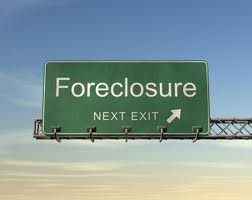Let’s go for Round 2 of what to look for in an appraisal report. Rather than only checking out the bottom line value, how do you know if the appraisal is solid or not? Last week I talked about looking at the neighborhood boundaries and market trends, and now let’s consider big-ticket issues like square footage, comp selection and adjustments.
1) Square Footage & Bed/Bath Count: Make sure to always look at the living area and bed/bath count in the appraisal report. Is it consistent with what you know to be true of the property or what public records says (assuming official records are correct of course)? If not, you definitely need to call attention to this difference because inaccurate measurements or missing bedrooms or bathrooms can impact value. Sometimes of course there is a reason why public records are different from what an appraiser measures. Also, remember that detached units are not added to the square footage of the main house (though they can be a part of the value still).

2) Comp Selection: This is one of the most important aspects of the appraisal. Whenever I teach classes about challenging low appraisals, I always recommend giving the most attention to comparable sales used in the report rather than misspelled words or minor clerical errors. A good “comp” or comparable sale is one that a buyer would consider as a replacement for the subject property. If the “comp” was still on the market, would a buyer also be interested in that property? Ultimately a competitive sale (comp) should probably have a somewhat similar location, size, level of upgrades and even bed/bath count. After all, what does a custom 3000 square foot home have in common with a 1000 square foot standard home? Not much, so they probably shouldn’t be compared. Of course there are almost always differences that require some sort of adjustment, so expect to see some. If there really aren’t any comps, it can be tricky, but this is what I do in my reports.

Case-in-point: A real estate agent called me last week and told me the appraiser chose a “comp” that sold around $200,000 and proceeded to give $120,000 worth of adjustments to this property to help justify the final value at $320,000. How competitive is a $200,000 house to a $320,000 house? Would a buyer be shopping for these houses at the same time? Probably not.
3) Adjustments: Do the adjustments in the appraisal report seem legitimate to you? Do they appear to be indicative of the way buyers behave? Do the adjustments make sense when you compare all the sales used in the appraisal report? The adjustments are supposed to be based on the amount buyers would pay for the difference (not the cost of the difference). For instance, if you see Comp 1 is 200 square feet smaller than the subject property, and the appraiser gave a positive adjustment of $10,000 to Comp 1, this means buyers are willing to pay $10,000 more for a house that is 200 square feet larger. You’ll have to look at other sales in the report (or market) to see if this adjustment makes sense or not. Another example would be if your property is remodeled throughout, but the appraiser gave a minor $10,000 adjustment for the upgrades. You might need to find a property in the neighborhood that has a similar level of updates so you can help show how much the market really pays for such features (probably more than $10,000).

Next week I’ll wrap up this series with a few more items to focus on. As I said before, I will post an example report at that time so you can download it and know exactly where to find these items when reviewing an appraisal. In the mean time, make sure to subscribe by email to get all posts delivered to your inbox (2-3 posts per week). I hope this has been helpful so far.
Any questions or insight? Feel free to comment below.
If you liked this post, subscribe by email (or RSS). Thanks for being here.
 else has sold at $350,000, the lower sale is probably more of an outlier than anything. This one “lone ranger” doesn’t establish the trend of values in the neighborhood or trump all other sales either because it’s not consistent with the rest of the data (even if it’s the most recent sale). This assumes of course there has been no big issue to cause a dramatic decline in property value. On the other end, just because one sale closed $50,000 higher than everything else does not mean the market is now willing to accept all other properties at that level either. Outliers can be on the low end and high end of the market.
else has sold at $350,000, the lower sale is probably more of an outlier than anything. This one “lone ranger” doesn’t establish the trend of values in the neighborhood or trump all other sales either because it’s not consistent with the rest of the data (even if it’s the most recent sale). This assumes of course there has been no big issue to cause a dramatic decline in property value. On the other end, just because one sale closed $50,000 higher than everything else does not mean the market is now willing to accept all other properties at that level either. Outliers can be on the low end and high end of the market. Distressed sales: It’s important to sift through distressed inventory because these sales tend to close at lower levels.
Distressed sales: It’s important to sift through distressed inventory because these sales tend to close at lower levels.